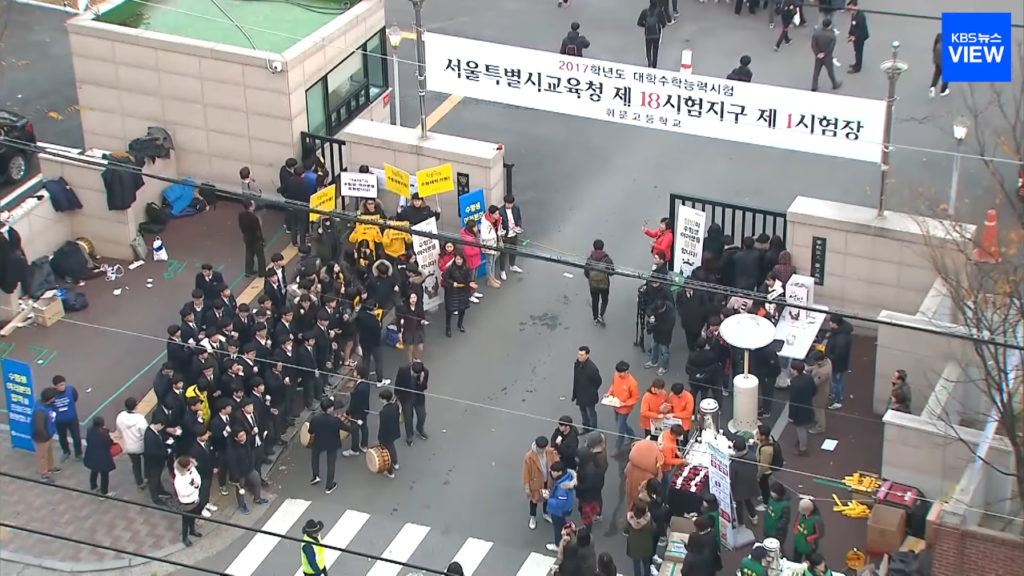The Peninsula
New Education Policy May Undermine Efforts to Reduce Inequality

This briefing comes from Korea View, a weekly newsletter published by the Korea Economic Institute. Korea View aims to cover developments that reveal trends on the Korean Peninsula but receive little attention in the United States. If you would like to sign up, please find the online form here.
What Happened
- Recent polling showed that 63.3% of South Koreans preferred standardized tests receiving greater weight in college admissions than high school grades.
- President Moon announced plans to abolish elite high schools and increase the weight given to the annual College Scholastic Ability Test in college admissions process.
- After the notice, the demand for housing in Seoul’s affluent Gangnam district reportedly increased.
Implications: The government’s plan to deliver a more equitable college admissions process may clash with its parallel effort to stabilize the housing market in Seoul. Observers fear that the elimination of elite high schools would increase people’s demand for housing in traditionally high-performing public school districts where prestigious public high schools and private cram schools are concentrated. This concern stems from the observations that elite schools, many of which are located outside the prosperous districts in Seoul like Gangnam, had helped divert housing demand from key parts of the city. Detractors of the government’s policy also point out that emphasis on high school grades had actually pushed families away from competitive school districts. Critics believe that reversal of these educational policies will help exacerbate housing scarcity in Seoul – something that is central to the Moon administration’s struggle to reverse wealth inequality.
Context: The South Korean government has always struggled with the high-cost of education and wealth inequality. In the 1980s, the government prohibited private tutoring in response to criticism that more economically privileged families were leveraging their wealth to give their children an unfair advantage. However, it failed to control the black market of private tutors. In 2000, the ban was declared unconstitutional. In 2001, the government expanded the weight of high school grades in college admissions process to moderate the demand for private tutoring ahead of standardized tests. However, this has not mitigated the role of private education.
Korea View was edited by Yong Kwon with the help of Soojin Hwang, Hyoshin Kim, and Rachel Kirsch.
Photo from KBS 뷰 photostream on Wikimedia Commons.
